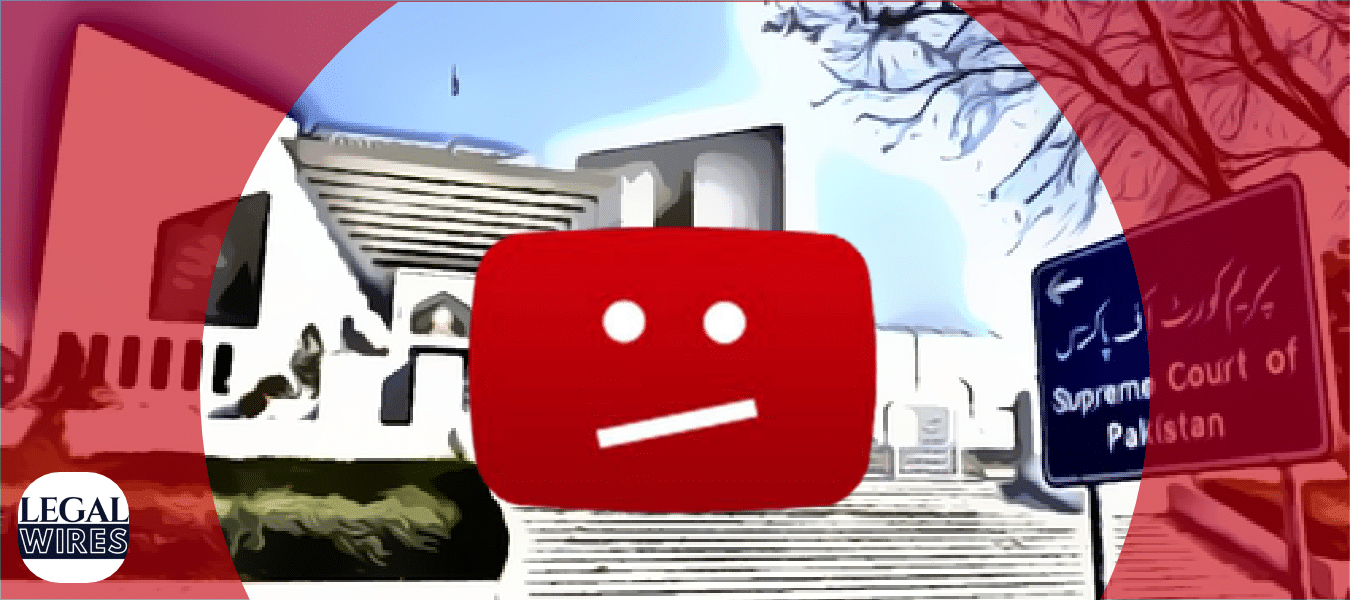The Supreme Court hinted at banning YouTube in Pakistan on Wednesday while hearing the case of a man, Shaukat Ali, involved in a sectarian crime.

ISLAMABAD: The Supreme Court hinted at banning YouTube in Pakistan on Wednesday while hearing the case of a man, Shaukat Ali, involved in a sectarian crime. Justice Qazi Muhammad Amin and Justice Mushir Alam were on the bench hearing the case. The court made a protestation and raised the query on the same to unregulated content on social media, particularly comments regarding the judiciary, the armed forces and the government. This has now in the purview of the scenario the social media platforms have become the main platform for the unregulated criticism of the government and its actions as well as the decisions.
The court later furthered and stated that ‘we have no objection to freedom of expression’, stated by Justice Amin. Our pays are paid from the money of the people, they have the right to raise questions on our decisions and our performance, he said. But the Constitution also grants us the right to privacy, added Justice Amin. Justice Amin remarked that family members of the judiciary come under scrutiny on YouTube. He mentioned to a decision announced yesterday which was discussed on the platform and asked whether the Pakistan Telecommunications Authority (PTA) and the Federal Investigation Agency (FIA) had taken notice of such happenings on the platform where judges are mocked and embarrassed. For every country the judiciary is the main way to gain justice and equality but if there is criticism of judiciary itself then the scenario feels to have gotten worse though these platforms are for the general public but including the families of the individuals and the judges even is something which literally bothers the Pakistan’s judiciary and that might have been the reason for them to take such a stiff decision to move the path of blocking the Youtube.
A PTA official told the court that the PTA cannot remove objectionable content but can only report it. YouTube is banned in many countries, said Justice Mushir Alam. He asked whether anyone would dare post content against the United States or the European Union on the platform. Justice Amin asked how many people have been prosecuted for such crimes while Justice Alam noted that social media is regulated through local laws in many countries. The statement can be considered as a prior justification by justice Alam as a way to justify that why the banning is good for Pakistan and the people reciding there.
People are incited against the judiciary, the government and the armed forces, remarked Justice Amin. The court issued notices to the attorney-general of Pakistan and the foreign ministry on the matter. Pakistan’s digital space has been frequently restricted and is monitored closely through laws such as the Prevention of Electronic Crimes Act 2016 as well by the federal agencies PTA and FIA. The decision now made is completely a portrayal of strict decisions taken by Pakistan and the non-ignorance policy towards any person who posts or uploads comments against the judiciary.
This not the first time when the social media platforms are banned in Pakistan. The first half of the previous decade saw bans on different social media platforms and blocks on various websites, the three-year ban on YouTube being the most infamous for thumping the growth of digital content in the country.





